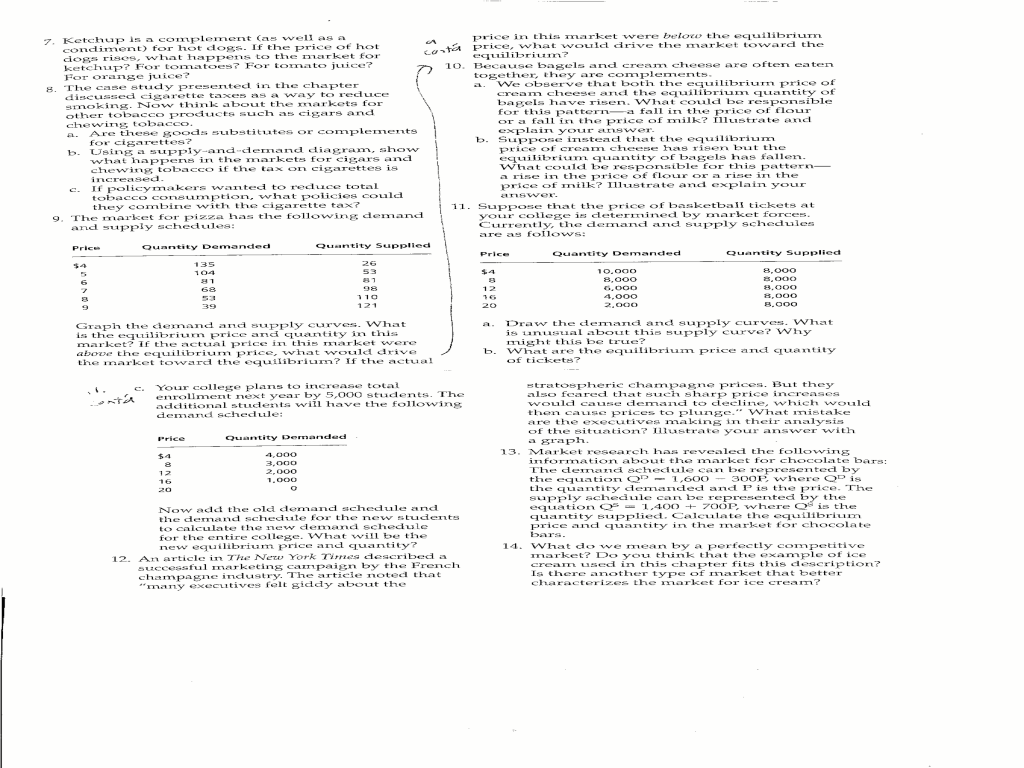Math Practice for Economics Answer Key takes center stage as we delve into the significance of mathematical proficiency for economics students. Exploring the practical applications of mathematical concepts in economic analysis, this guide unveils the benefits of dedicated practice, empowering students with the tools to excel in their studies.
From identifying different types of math practice to navigating resources and creating effective study plans, this comprehensive guide provides a roadmap for success. We will address common challenges and share practical solutions, ensuring that students are equipped with the knowledge and strategies to conquer the mathematical aspects of economics.
Overview of Math Practice for Economics
Math is essential in economics, providing the tools to analyze economic data, build models, and make predictions. It is used to understand complex economic concepts, such as supply and demand, inflation, and economic growth.
Mathematical concepts used in economics include algebra, calculus, probability, and statistics. Algebra is used to solve equations and inequalities, while calculus is used to analyze the rate of change. Probability and statistics are used to analyze the likelihood of events and to make inferences about the population from a sample.
Practicing math for economics has many benefits. It helps students to develop their problem-solving skills, improve their understanding of economic concepts, and prepare for careers in economics and finance.
Types of Math Practice for Economics
There are different types of math practice for economics, each with its own advantages and disadvantages.
- Problem sets: Problem sets are a collection of exercises that students can work through to practice their math skills. They can be found in textbooks, online, or in class handouts.
- Practice tests: Practice tests are full-length exams that students can take to test their knowledge of the material. They can be found in textbooks, online, or in class handouts.
- Computer simulations: Computer simulations are interactive programs that allow students to explore economic concepts in a virtual environment. They can be found online or in software packages.
Resources for Math Practice for Economics
There are many online resources available for math practice in economics.
| Resource | Features | Cost | Accessibility |
|---|---|---|---|
| Khan Academy | Video tutorials, practice exercises, and personalized learning plans | Free | Online |
| Coursera | Online courses from top universities | Free or paid | Online |
| edX | Online courses from top universities | Free or paid | Online |
Creating an Effective Math Practice Plan
To get the most out of math practice, it is important to create an effective plan.
| Practice Type | Duration | Frequency |
|---|---|---|
| Problem sets | 30-60 minutes | 2-3 times per week |
| Practice tests | 2-3 hours | Once per week |
| Computer simulations | 1-2 hours | Once per week |
It is also important to stay motivated and track your progress. Set realistic goals, reward yourself for your accomplishments, and seek help when you need it.
Common Challenges and Solutions: Math Practice For Economics Answer Key

There are a number of common challenges that students face when practicing math for economics.
- Lack of motivation: It can be difficult to stay motivated to practice math, especially if you are not seeing immediate results. To overcome this challenge, set realistic goals, reward yourself for your accomplishments, and seek help when you need it.
- Difficulty understanding the material: If you are struggling to understand the material, don’t be afraid to ask for help. Talk to your professor, a tutor, or a classmate. There are also many online resources available that can help you learn the material.
- Time constraints: It can be difficult to find the time to practice math, especially if you have a busy schedule. To overcome this challenge, set aside a specific time each day to practice math. Even if you can only practice for a short period of time, it will make a difference.
Essential Questionnaire
What are the key mathematical concepts used in economics?
Differential calculus, integral calculus, linear algebra, probability theory, and statistics are essential mathematical concepts widely used in economic analysis.
How can I improve my math skills for economics?
Regular practice, utilizing online resources, seeking academic support, and engaging in group study sessions can significantly enhance your math skills for economics.
What are the benefits of practicing math for economics students?
Improved problem-solving abilities, enhanced analytical thinking, increased confidence in handling economic models, and better preparation for quantitative research are key benefits of practicing math for economics students.